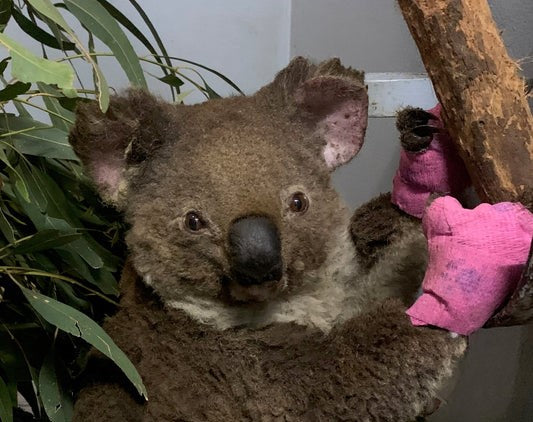Wildlife Clinic
Wildlife Clinic- Treatment & Care
Our busy hospital receives hundreds of koala admissions throughout the year due to trauma and illness. Admission numbers will spike during bushfires and other extreme weather events.
In addition to koalas, we also admit wildlife rescues from FAWNA, ensuring that each patient receives the best care from our Wildlife Veterinarians.
Our Clinic has life-saving equipment, such as X-rays, ultrasounds, oxygen tanks, and humidicribs. We rely on donations from the public and sponsors to purchase and maintain our hospital equipment.
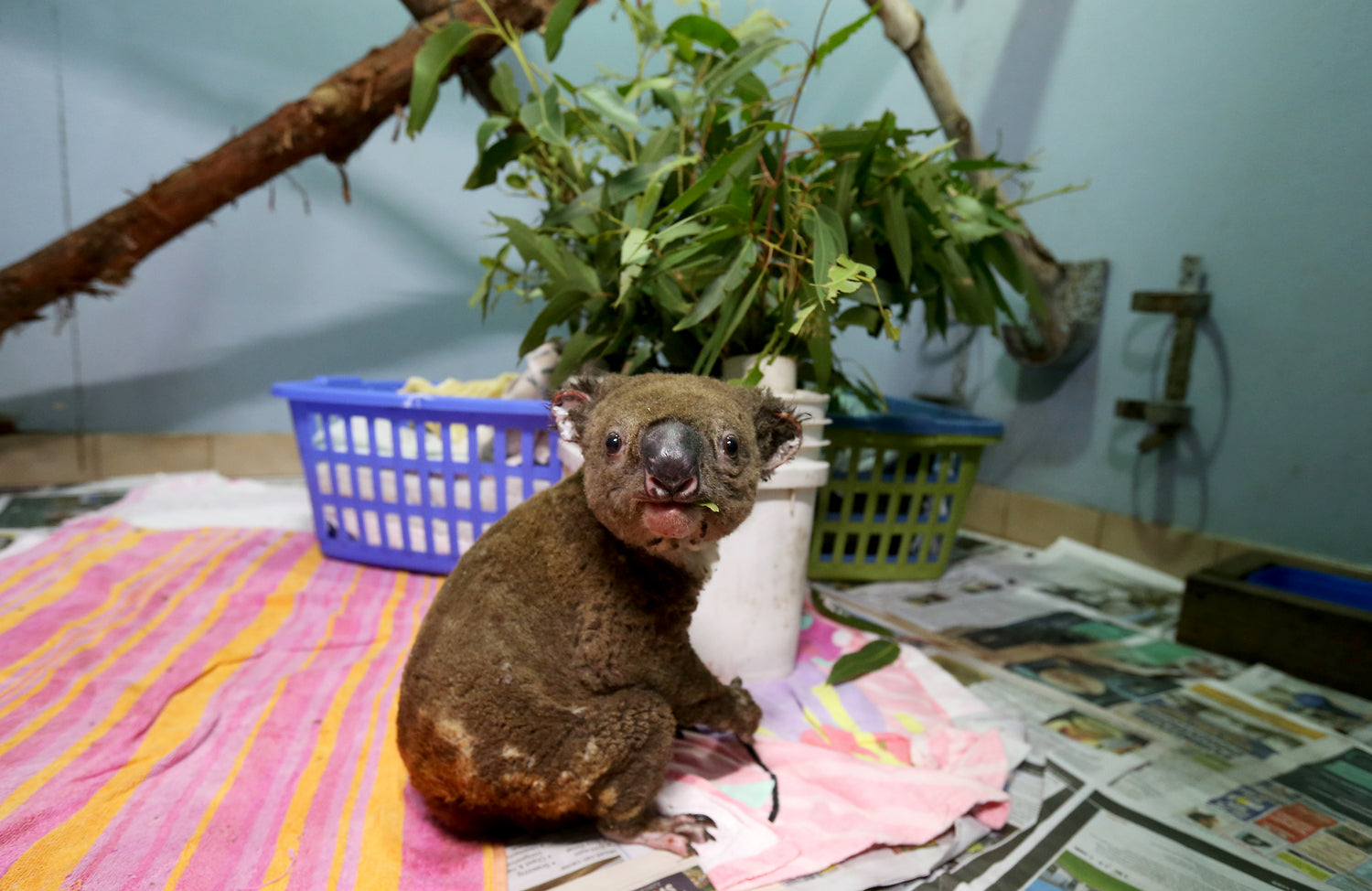
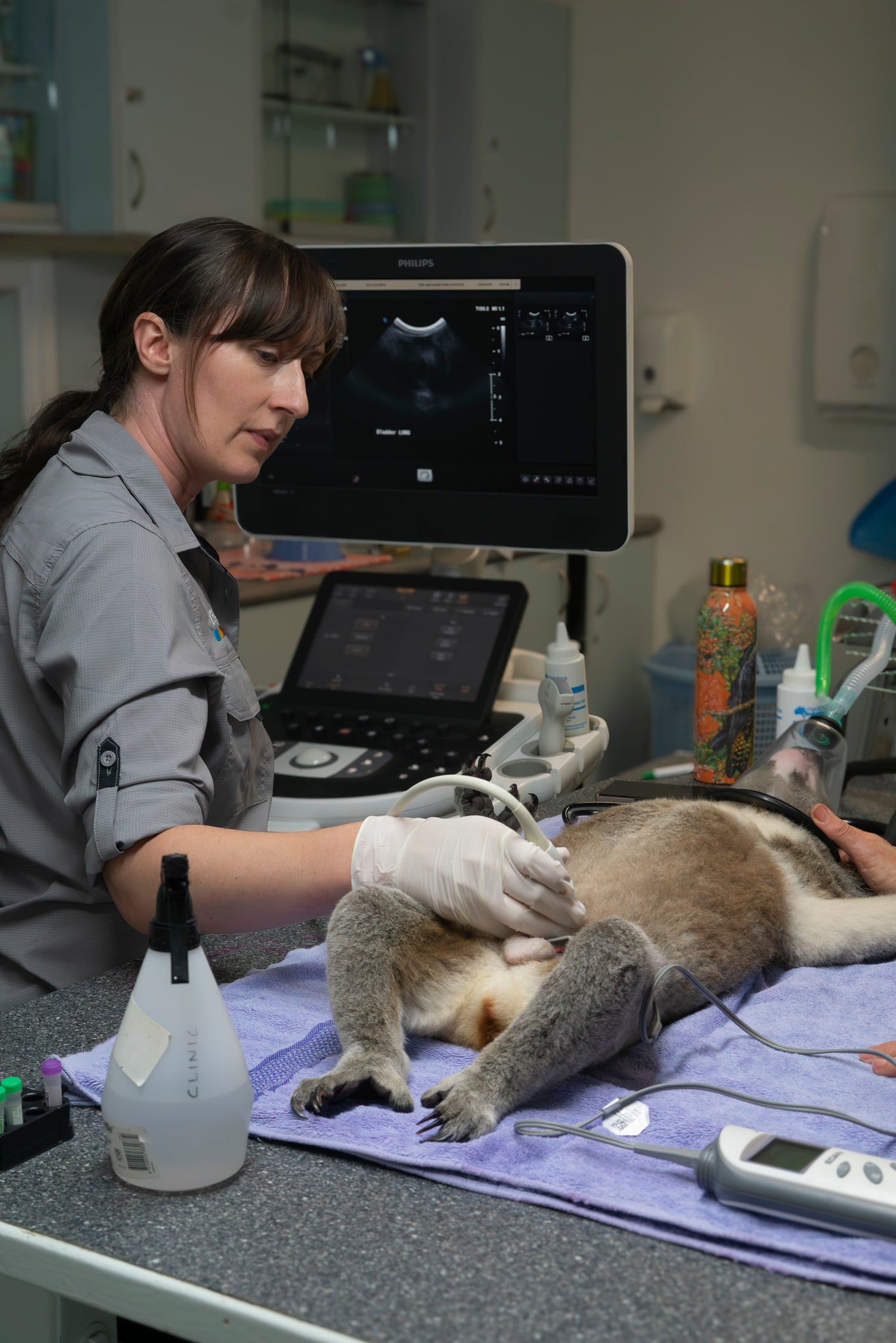
Common reasons for koala hospital admissions
- Trauma
- Dog attacks
- Vehicle accidents
- Bushfire burns and injuries
- Other injuries, including those sustained in koala fights, tree falls, snake bites, and fence entanglements.
- Chlamydia
- Other diseases
- Kidney disease
- Respiratory disease
- Gastrointestinal disease
- Other causes of admission
- Orphaned joeys
- Old age (arthritis, advanced tooth-wear)
- Cancer
- Drowning in backyard pools
On Admission
All koalas brought into our hospital are admitted, where one of our Wildlife Veterinarians will perform the following:
- Observation- to check the extent to which the koala can move and behave normally.
- Physical examination under anaesthesia to check hydration, body condition, coat quality, wounds/injuries, visible symptoms of diseases, and heart and lung function.
- Check for the presence of joeys in female pouches.
- Ultrasound examination- to look for internal symptoms of chlamydiosis (and internal injuries in the case of trauma).
- Blood tests to check blood cells and organ function.
- Swab collection - to test for Chlamydia.
- If fractures are suspected, X-rays are taken.
If a koala requires surgery, we transport the patient to a local veterinary orthopaedic surgeon.
Each koala is weighed, sexed, aged, and measured on admission, and this is recorded in our database along with the koala's rescue location, health assessment results, treatment details and prognosis.
Once a koala is ready for release, it is ear-tagged and microchipped. That way, if the koala is readmitted in the future, staff can pull up the koala's chart and immediately know its clinical history. Some koalas are affectionately known as “repeat offenders” due to their regular admission history. Most of these cases occur because these koalas must continually battle with roads, dogs, disease, and shrinking habitats.
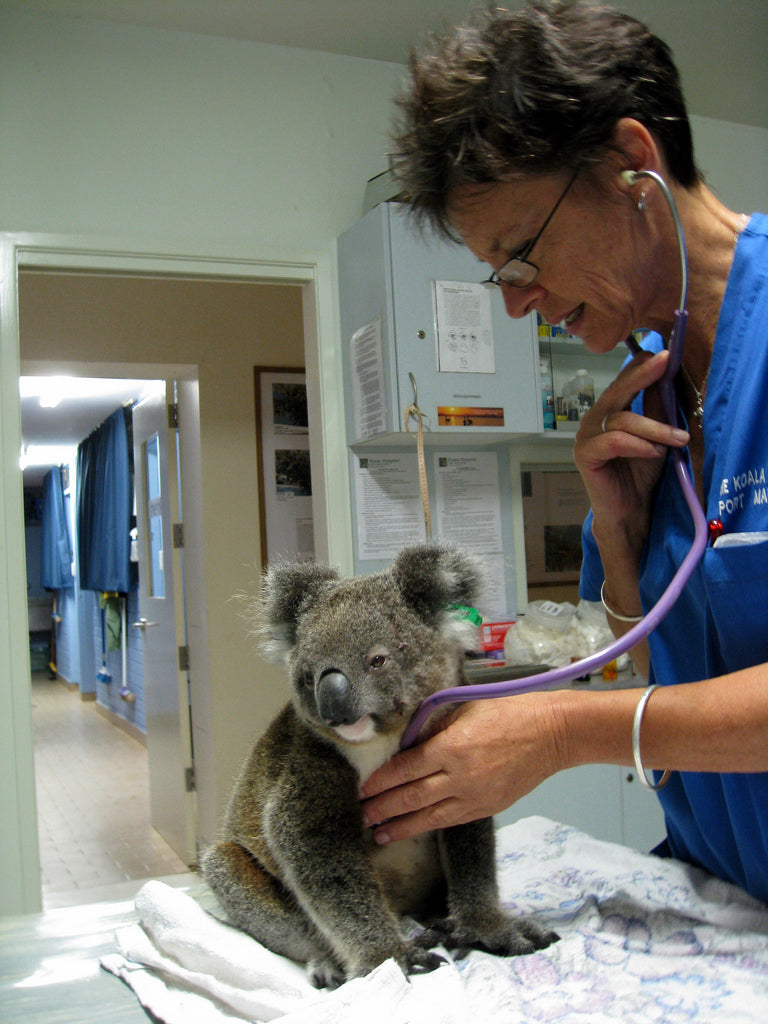
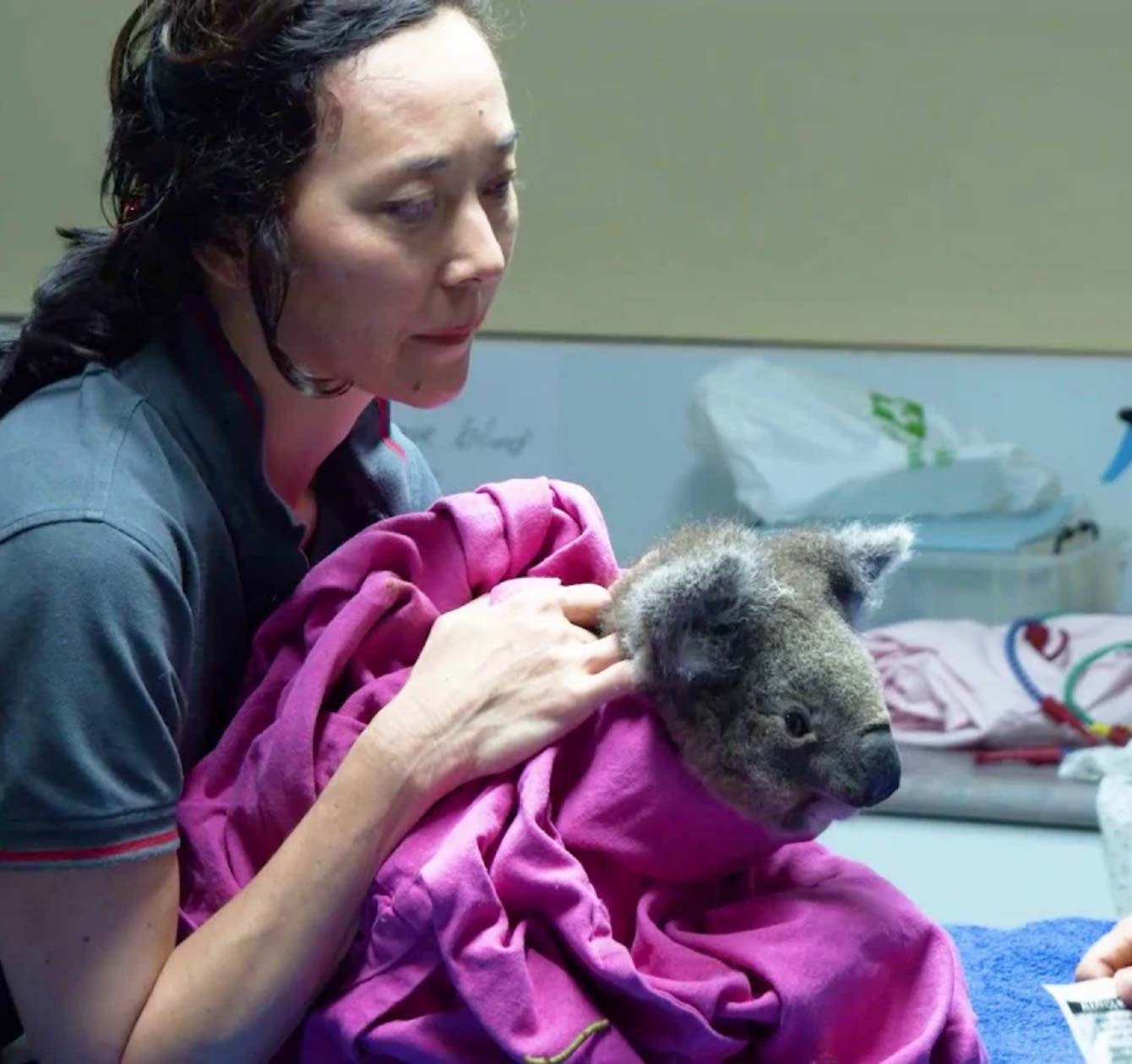
Treatment - Injuries
Treatment will depend on the extent of the injuries or medical condition. If required, surgery to repair fractures is performed, or if the injuries are too extensive, the koala will be euthanised. After surgery, the koala will enter one of our Intensive Care yards. Care includes close monitoring, dressing changes, medications, feeds, and more.
The next stage is usually a transfer to our rehabilitation yards, which lasts anywhere between one day and six months.
Treatment- Chlamydia
Chlamydia is a significant disease threat to our Koala population, particularly in and around urbanised areas. Many koalas admitted to our Clinic (with or without symptoms) test positive for this terrible disease. Sometimes the symptoms are very obvious, like with Brie pictured here with her joey. Brie has Ocular Chlamydia, which impacts the eyes. Koalas can also have urogenital symptoms of Chlamydia, presenting with a wet, dirty-looking bottom.
We commence a 4-6 week treatment plan with antibiotics. Although antibiotics kill the disease, they need to be used with extreme caution, as they can destroy the critical microbiome in the Koala (and do more harm than good).
At the end of the treatment plan in rehabilitation, the koala is held for a further two weeks under observation (without human intervention). After this time, we perform another full health screen under anaesthesia. If they’re given a clean bill of health, the koala is ear-tagged, microchipped, and released back to its capture point. Otherwise, we will keep them at the hospital for an extended period of time until they are sufficiently recovered. Weight loss is a particular issue when a Koala is put on antibiotic treatment.
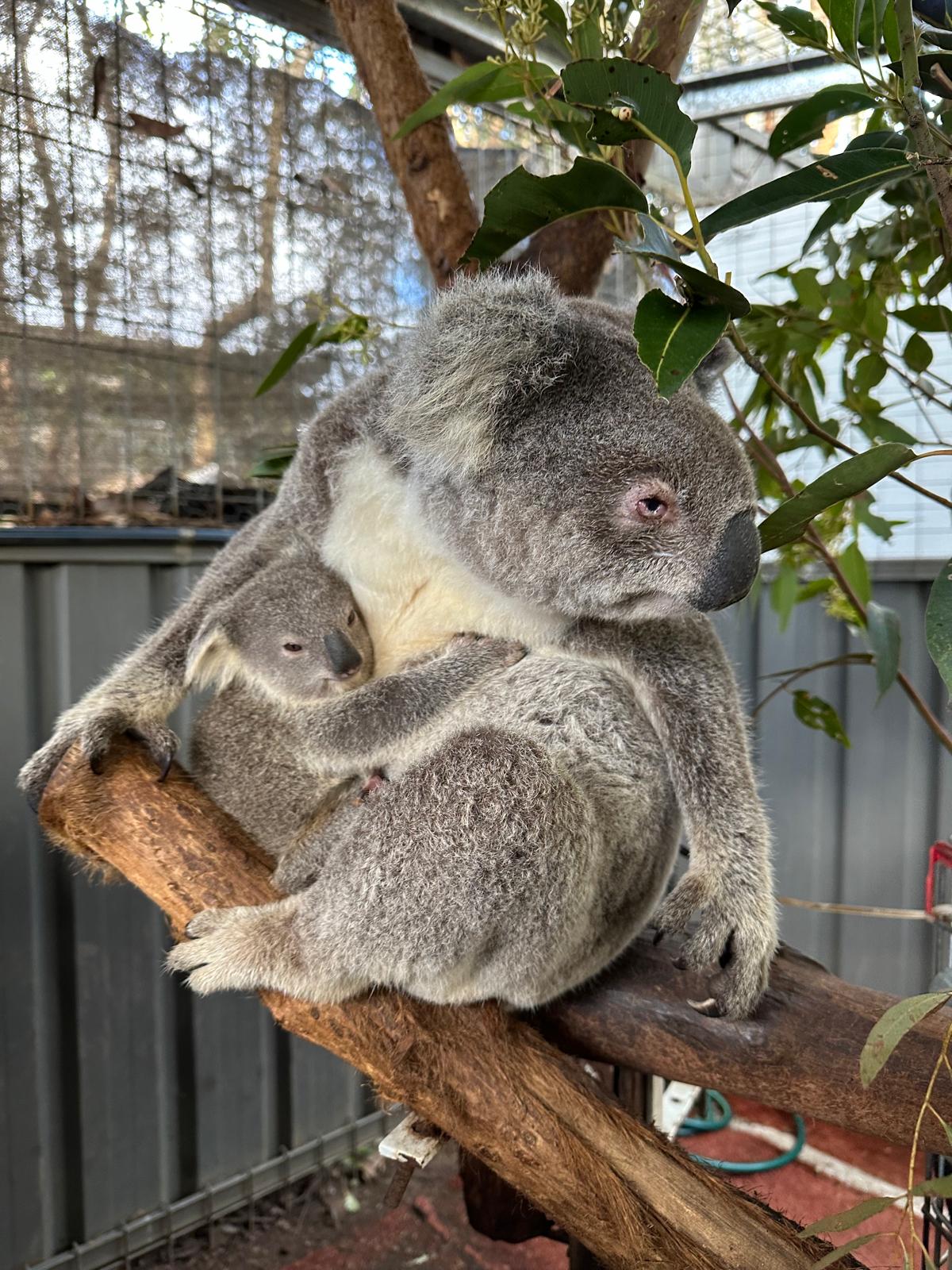
A note on humane, compassionate wildlife care
Wildlife medical treatment is complex and specialised. Our staff deal with wild animals, who become scared and distressed when interacting with humans. To make things less traumatic for the koala, we must perform examinations under anaesthesia before most assessments and treatments.
The welfare of the wildlife we treat is paramount.
Koala Conservation Australia's priority is always animal welfare. If an animal's prognosis is poor and they're unlikely to return safely and comfortably to the wild, it may be euthanised to prevent further suffering. We do our utmost to give every patient the best chance at recovery, but sometimes, this is the kindest course of action.
Other Koala Clinic functions
- Each of our resident koalas receives seasonal health check-ups in the clinic by one of our experienced wildlife vets.
- Our new Wild Koala Breeding facility at Guulabaa will open a second clinic dedicated to health management of breeding koalas and their offspring by late 2024. This clinic and research lab will focus on breeding wild koalas, including health screening and koala husbandry, neo and post-natal care, research, and training.

